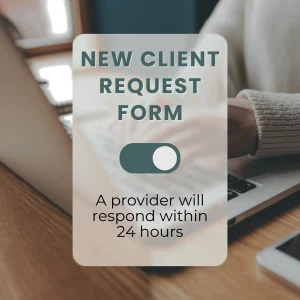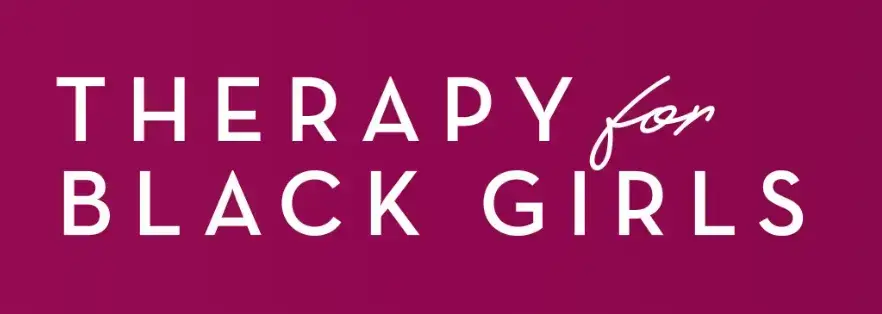
Diets Are Bullshit:
How Diet Culture
Starves our Minds & Bodies
Diet culture is everywhere. It promises quick fixes, perfect bodies, and everlasting happiness. But let’s be real—diets are bullshit. They mess with our minds, harm our bodies, and set us up for failure. So, how do we break free from this vicious cycle? It’s all about mindful eating and focusing on person-centered wellness.
Cycles of Problems in Diet Culture
Diets lure us with the promise of rapid weight loss, but most fail to deliver sustainable results. Instead, they often lead to:
Yo-yo Dieting:
The infamous cycle of losing and regaining weight.
Nutritional Deficiencies:
Cutting out food groups can leave us lacking essential nutrients.
Mental Stress
Constantly worrying about food can lead to anxiety and depression.
Body Image Issues
Unrealistic standards can harm our self-esteem.
The truth is, there’s no one-size-fits-all solution. Our bodies are unique, and so are our nutritional needs.
Diets and Mental Health
Our mental health plays a crucial role in our overall well-being. Stress, anxiety, and depression can negatively impact our eating habits and vice versa. To achieve long-term wellness, we need to nurture both our minds and bodies. Mindful eating is about paying full attention to the experience of eating and drinking, both inside and outside the body. Here’s how to practice it:
Listen to Your Body:
Eat when you’re hungry and stop when you’re full
.
Slow It Down:
Take your time to savor your food, chew without the force of a thousand demons and don’t rush through a meal.
Avoid Distractions:
Turn off the TV and put away your phone during meals. Maybe it sounds like torture, but it gives yoru brain a chance to actually register your body’s response to eating and when you’re getting full.
Eat with Intention
Choose foods that nourish and satisfy you. Silly as it sounds, I work with clients on finding ways to really attune to their body’s needs by using mantras like “what can I give my body” or “what does my body need”. It works, and you’d be surprised how much ✨mental health stuff✨ comes up when being intentional.
Breaking Free from Diet Culture
If escaping diet culture was as easy as ignoring it, we’d all be much healthier, and I’d probably be out of a job. But escaping diet culture requires a shift in mindset. Sounds a little wu-wu but it’s true, how we think about the dominant culture around us is everything. So how do we shift our thinking?
- Fuck the (Food) Police
Silence the negative thoughts that judge your eating habits.
- Reject the Diet Mentality
Acknowledge that diets don’t work for long-term health.
- Honor Your Hunger
Trust your body’s signals and eat when you’re hungry.
- Make Peace with Food
Give yourself unconditional permission to eat the foods that fuel you
- Respect Your Body
Appreciate your body for what it can do, not just how it looks.
The Racism and Privilege in Diet Culture
Diet culture isn’t just harmful to our health—it also perpetuates systemic racism and privilege. Many of the ideals and standards it promotes are rooted in Western, white beauty norms, which can marginalize and harm people of color. The Body Mass Index (BMI), a common tool used in diet culture, was developed by Adolphe Quetelet in the 19th century. His data was based solely on European populations, making it inherently biased. This has several problematic implications:
Racial Bias
BMI does not account for the diverse body types and compositions found in different racial and ethnic groups. It often labels healthy individuals as overweight or obese based on Eurocentric standards.
Reinforcing Stereotypes
By holding everyone to a single standard, BMI reinforces the idea that certain body types are “normal” or “ideal,” which often align with white, Western bodies.
Health Disparities
The misapplication of tools like BMI can lead to inadequate or inappropriate health advice and treatment for people of color, exacerbating existing health disparities.
Marginalization
People who do not fit these narrow standards may feel excluded or pressured to conform, leading to issues like low self-esteem and body dysmorphia.
Moving Beyond Diet Culture & Western Beauty Ideals
To create a more inclusive and healthy approach to nutrition and wellness, we must:
Embrace (& Empower) Diversity
Recognize and celebrate the beauty of diverse body types and cultures.
Use Person-Centered Measures
Focus on individual health markers and personal well-being rather than one-size-fits-all metrics like BMI.
Promote Inclusivity
Encourage media and health professionals to represent and cater to a wide range of body types and backgrounds.
In a Nutshell...Diet Culture is Bullshit
So, let’s say it loud and clear: Diet culture is bullshit. True wellness comes from listening to your body, nourishing your mind, and rejecting the toxic culture that diets perpetuate. Diets and mental health do not go together, and we shouldn’t believe the notion that dieting is a sustainable path towards wellness. Instead, looking at our physical and mental health needs on a person-to-person basis will foster positive results.
Ready to start Therapy?
📲 Call
💬 Text
💌 Email
📝 Request a Discovery Call

FAQ's About Therapy in New Jersey
How do I get started as a new client?
New Clients can reach out to us directly via call, text or email here:
Or, you can complete a new client form and we’ll reach out to you within 24 hours here:
What are your specialties?
Our therapists have dedicated their clinical work to specific niche areas. Check out our therapy service page here to learn about our areas of expertise
What type of therapy do you offer?
We offer traditional and non-traditional therapy
Traditional therapy, such as talk therapy incudes:
- Individual therapy
- Couples Counseling
- Family Therapy
- Cognitive Behavioral Therapy
- Emotion-Focused Therapy
Do you offer Ketamine Therapy?
Yes! Ketamine has shown promise in treating various mental health conditions, including PTSD, Anxiety, Depression, Phobias and OCD. As Ketamine therapy providers, we offer this service to help clients break cycles of thinking traps that lead to compulsive behaviors.
Is Online Therapy As Effective As In-Person Therapy?
Online therapy is essentially face-to-face counseling, just conducted remotely. Studies show that teletherapy is as effective as traditional counseling. Professional organizations and state governments recognize its benefits and have set regulations for it. However, like any therapy, its success in achieving your goals isn’t guaranteed. It’s important to discuss with your therapist whether teletherapy is working for you.
What age groups do you serve?
Currently, we work with New Jersey clients ages 10+
Do you offer traditional talk therapy?
of course! though we have some unconventional therapy approaches, we are rooted in evidenced based practices. Talk therapy is a major player in the therapy room! See What we Treat and Integrative Services for more information
What Geographic Areas Are Served?
Currently, we serve clients in New Jersey and are expanding to other states as telehealth laws evolve. While telehealth offers the convenience of attending sessions from anywhere, state laws require clients to be in-state during their session.
Does my insurance cover my visits?
We provide”Courtesy Billing” for clients who are using the Out-of-network insurance benefits.
Our Insurance Page shares a small blurb about Why We Left Insurance Panels
Can I Change Therapists If I'm Not Happy?
Yes, you can switch therapists to another provider within the practice, or we can provide you a referral if preferred. We want to ensure that your time and effort are well spent, and that you are getting the relief you need, that’s why we work collaboratively with each other in the practice, as well as outside therapists who we know and trust.
What is your cancellation policy?
We ask that clients provide at least 24 hours notice in the event that they need to cancel to avoid the 50% cancellation fee. we understand that life happens and do our best to be flexible & reschedule.
How Do I Know If Therapy Is Helping?
You should feel like you’re making progress. Signs it’s working include:
Feeling comfortable talking to your therapist
Your therapist respects boundaries
You’re moving towards your goals
You feel listened to
You’re doing better in life
Your self-esteem is getting better
Is Online Therapy Easy to Use for Non-Tech-Savvy People?
Yes, it’s pretty simple to access sessions. You’ll need basic internet skills, such as opening and visiting the patient link sent to you via email. It’s similar to video chatting like Facetime or Zoom. We can also walk you through it on the phone the first time to ensure a strong connection
What Questions Should I Ask My New Therapist?
Feel free to ask anything. Some good questions are:
- How often will we meet?
- What do you specialize in?
- What experience do you have with my issue?
- What outcomes can I expect?
- How will I know I’m progressing?
- How long do you usually work with clients?
- How will we set my treatment goals?
How Should I Prepare for My First Session?
Showing up is all that you need to do! But if you really want to get the most out of session, it could help to take some time to think about what you want from therapy. It helps to write down your goals, questions you have or things that you feel are important to share.
What is the difference between associate therapists & fully licensed therapists?
Our Qualifications:
Our founder, Rebecca Sidoti, is a highly qualified, state-licensed therapist and supervisor with extensive training in anxiety related disorders and innovative treatment such as Ketamine Therapy. Mind by Design Counseling adheres to standards set by the our governing counseling boards.
To see each providers credentials, training and licenses, visit our “Meet the Therapists” Page to learn more.
- LAC/LSW are therapists who may practice clinical work under the supervision of a fully licensed therapist.
- LPC/LCSW are therapists who have completed the necessary clinical hours post-graduation under supervision and can practice clinical work independently.
Is Virtual Counseling Suitable for Everyone?
Online therapy might not be as effective for individuals with chronic suicidal thoughts, severe trauma, significant mental health history, or those recently in intensive care. Such cases often benefit more from traditional, in-person counseling. We’ll help you decide if our online services are right for you during your intake and evaluation.
What Equipment is Needed for Online Therapy?
To join a session, log in using the credentials we provide. No downloads are needed. Our platform, compatible with both individual and group sessions, requires:
A computer or mobile device with a webcam and internet access.
We’ll help you test your setup before your first appointment to ensure a reliable connection. iOS users should use the Safari browser for mobile and tablet sessions.
What Questions Will Therapists Ask Me?
It depends on your goals. Expect questions about your thoughts, feelings, relationships, work, school, and health. They’ll ask to understand your therapy goals.
How Do You Keep Client Information Secure?
Security and Confidentiality of Sessions:
Your privacy is crucial to us. We use TherapyNotes, a HIPAA-compliant platform, ensuring secure and confidential teletherapy sessions. This platform’s security features include encrypted video connections, secure data transfers, and encrypted databases, ensuring your information is safe at all times.
What is VRT used for?
we use VRT to support Exposure Therapy, a long standing traditional therapy modality to treat phobias, anxiety and stress. we send a headset directly to your home so you can access VRT from anywhere.
VRT not only helps with exposure therapy for phobias, but is great for ADHD, mindfulness, PTSD and social anxiety.











